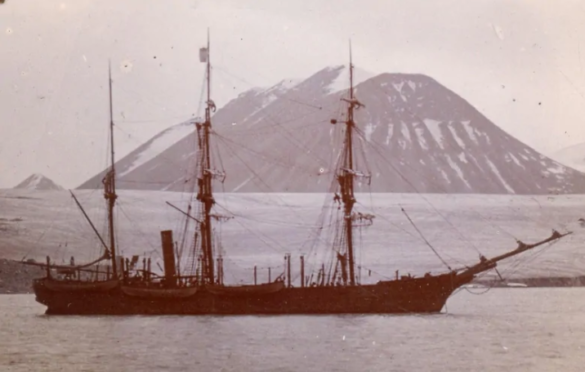An historian whose painstaking detective work led to the discovery of a long-lost Dundee whaling ship will discuss the search at an event in Perth next week.
The Nova Zembla disappeared into the icy waters of the Arctic more than a century ago.
It was found by researchers from Calgary, Canada, last year after breakthrough research by Matthew Ayre of the Arctic Institution of North America.
Mr Ayre has been invited to discuss his involvement in the remarkable project at an illustrated talk, hosted by the Royal Scottish Geographical Society, in Perth on Monday.
Chief executive Mike Robertson said: “The story of the ill-fated Nova Zembla made headlines across Scotland when it was lost to the Arctic 117 years ago.
“And since then, finding the wreck has been a source of great interest and inspiration for archaeologists, historians and scientists alike.”
He said: “Early references to the story were made in The Courier on November 3, 1902, reporting that ‘no lives were lost, but many of the crew had narrow escapes, and their adventures read like a romance’.
“We’re delighted to host Matthew at our offices in the heart of Courier Country to report on the latest findings from this fascinating Scottish-Arctic story.”
The crew of the Nova Zembla woke on the morning of September 18, 1902, to the terrible sound of the vessel’s timbers being crushed against the reef below.
Heading for the safety of a natural harbour during a blinding Arctic storm, the ship ran aground on one of the most remote stretches of the Baffin Island coast.
Mr Ayre became involved in the mystery in early 2018, when he uncovered a first-hand account of the ship’s loss.
Following this breakthrough, he began to piece together more historical clues about the wreck’s position. And before long, he was leading a Royal Canadian Geographical Society expedition to the Arctic coast.
Using a drone and a rubber dinghy – and with only an eight hour window – Mr Ayre and fellow researcher Michael Moloney located the wreck and wood from the ships’ mast strewn across the beach. The debris is thought to have been lying there, untouched for 116 years.
Mr Moloney told the Canadian Broadcast Corporation: “It survived storms, and that area ices over every year.
“The thing is, it’s so remote that its probably been washed up and sitting on the beach for 116 years – and no one’s every come across it because that’s the nature of the Arctic.
Tickets for Monday evening’s talk, at the Fair City’s Lord John Murray House, North Port, can be booked online via Eventbrite.










